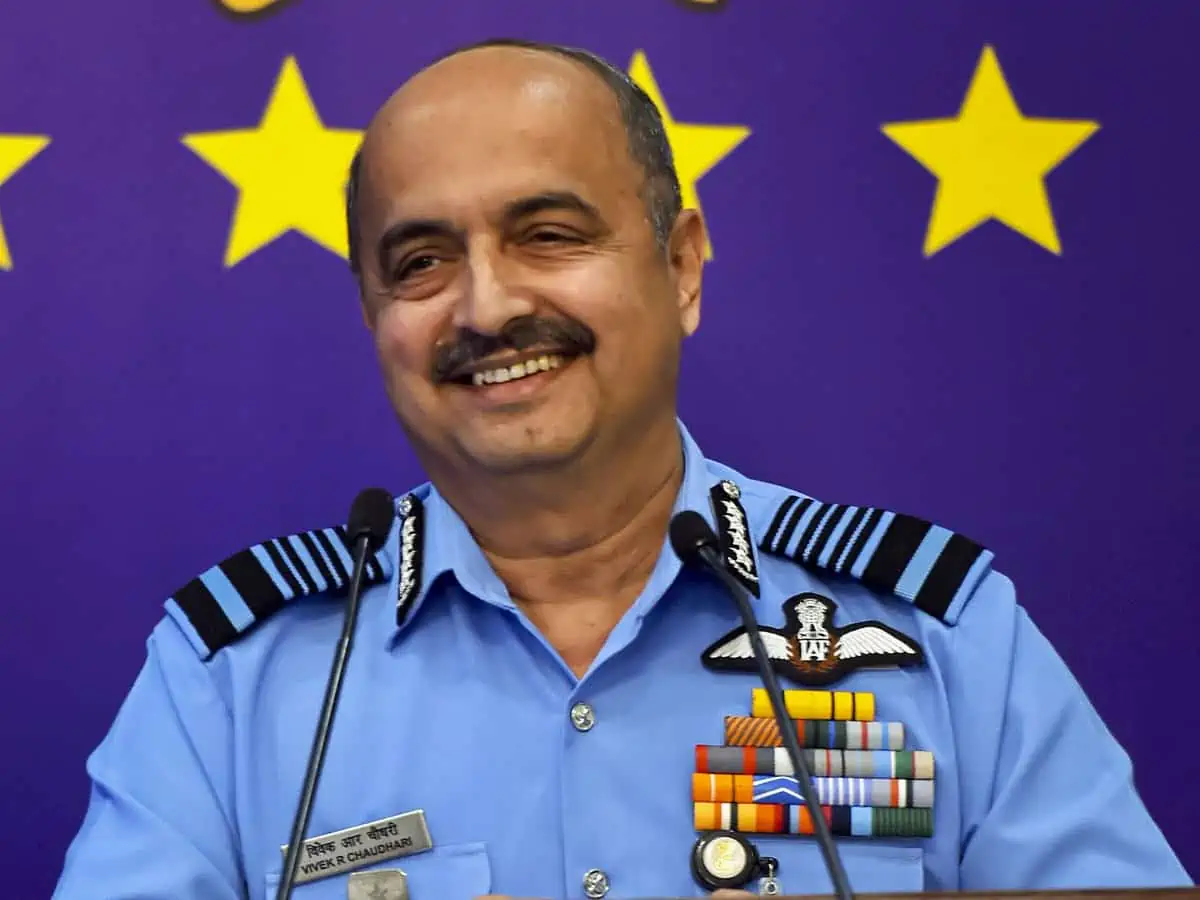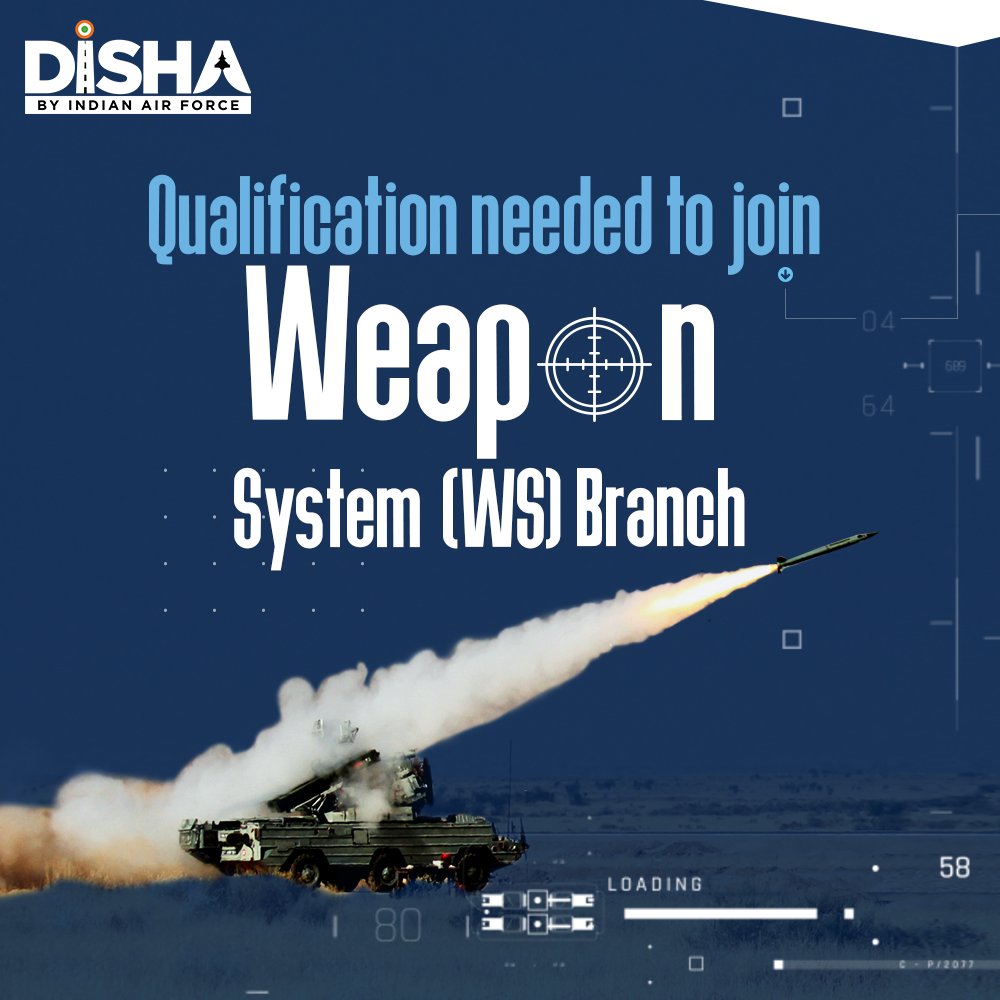First Batch of 33 Officers to join IAF Weapons System Branch
IAF Weapon System Branch : The Indian Air Force is set to receive its inaugural group of weapons systems officers next year. These officers will be responsible for managing missiles, drones, and space-based systems, as revealed by Air Chief Marshal V R Chaudhari, Chief of the Air Staff, in the national capital on Wednesday.

Weapon System Branch in IAF
Table of Contents
The Indian Air Force will get its first batch of weapons systems officers next year for handling missiles, drones and space-based systems, Chief of the Air Staff Air Chief Marshal V R Chaudhari.
“We’ve got the government sanction for establishing this branch completely. The Air Force Common Admission Test was conducted a few weeks ago for the selection of candidates to join this branch. The first batch of 33 officer cadets will join the (IAF) academy at the beginning of next year and will get commissioned at the end of next year as weapon system branch officers,” Air Chief Marshal Chaudhari said at an event in New Delhi.
Last year the government approved opening up a new branch – the first one since independence – to handle weapon systems, freeing the fighter pilots for their core competence, flying combat jets.
The new branch will have four sub-branches –
(1) to operate the weapons in twin and multi-crew aircraft
(2) for handling space-based intelligence and satellite images
(3) to operate remotely piloted aircraft and
(4) mission commanders and operators for surface-to-ground weapons, surface-to-surface missiles and close-in weapon systems.
ARMY AGNIVEER FINAL RESULT 2023 – DOWNLOAD ARO-WISE PDF

Weapon System Training School
The Chief of the Indian Air Force announced that a specialized weapon system school will be established at Air Force Station, Begumpet.
Weapon System Branch Training Module
The training will be divided into two phases. The initial stage will take place at the IAF academy in Dundigal, and the subsequent portion of the training will occur at the newly established school in Begumpet. The curriculum will be standardized for all four sub-branches. When announcing this initiative last year, he mentioned that introducing this branch would result in a cost savings of Rs 3,400 crore for the air force, as trained pilots would no longer be diverted for non-flying duties.
Responsibilities of Weapon System Branch Officer
A Weapon Systems Officer (WSO), often referred to as “wizzo,” is an air flight officer directly engaged in overseeing all aspects of an aircraft’s air operations and weapon systems. In the capacity of a WSO specializing in Intelligence, Surveillance, and Reconnaissance (ISR) operations, your responsibilities will include operating intricate sensor systems and communication equipment to gather both tactical and strategic intelligence to support military personnel and commanders.
These ISR duties encompass Land (Lnd), Electronic Warfare (EW), and Acoustic (Aco) ISR functions, which are applied across various RAF ISTAR platforms. This multifaceted role serves to protect the nation from maritime threats, establish air superiority, and carry out a wide range of other missions.
Linguists (Lg) within this role play a vital role by translating and analyzing foreign radio broadcasts. They contribute to the defense of India and its allies by providing real-time intelligence to the battlefield.
Weapon Systems Operators specializing in ISR are responsible for utilizing advanced sensor systems and communication gear to acquire tactical and strategic intelligence, aiding the efforts of warfighters and military commanders.
Frequently Asked Questions :-
Q1: What is the Weapon System Branch Training in the military? A1: Weapon System Branch Training is specialized training provided to military personnel who will operate and manage various weapon systems, including missiles, drones, and other advanced technologies.
Q2: Who is eligible for Weapon System Branch Training? A2: Eligibility for this training typically depends on the specific requirements and prerequisites set by the military branch offering it. It may vary, but generally, candidates need to meet certain educational and physical fitness standards.
Q3: What is the duration of Weapon System Branch Training? A3: The duration of the training can vary significantly based on the specific weapon systems and the depth of training required. It can range from several weeks to several months.
Q4: Where does Weapon System Branch Training take place? A4: Weapon System Branch Training often occurs at specialized military training facilities, which can be located in various regions or bases, depending on the military branch and the specific program.
Q5: What skills and knowledge are taught during Weapon System Branch Training? A5: Training typically covers a range of topics, including the operation and maintenance of weapon systems, tactical and strategic intelligence gathering, communication systems, and mission planning.
Q6: Are there different specializations within Weapon System Branch Training? A6: Yes, there may be various specializations within Weapon System Branch Training, such as Intelligence, Surveillance, and Reconnaissance (ISR), Electronic Warfare (EW), and more, depending on the military’s needs.
Q7: Is Weapon System Branch Training open to both officers and enlisted personnel? A7: Yes, it is generally open to both officers and enlisted personnel, although the eligibility criteria may differ.
Q8: Do graduates of Weapon System Branch Training receive any certifications or qualifications? A8: Graduates often receive certifications and qualifications specific to their field, which can enhance their career prospects within the military.
Q9: Can I apply for Weapon System Branch Training in IAF as a civilian or non-military individual? A9: No, Weapon System Branch Training is typically restricted to military personnel who meet the necessary prerequisites.
Q10: What are the career opportunities after completing Weapon System Branch Training? A10: After completing the training, individuals can serve in various roles within the military, including as Weapon Systems Officers, Intelligence Analysts, Communication Specialists, and more, depending on their specialization.









